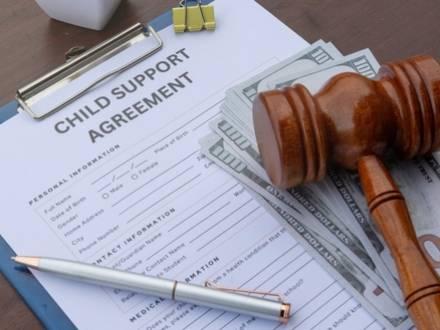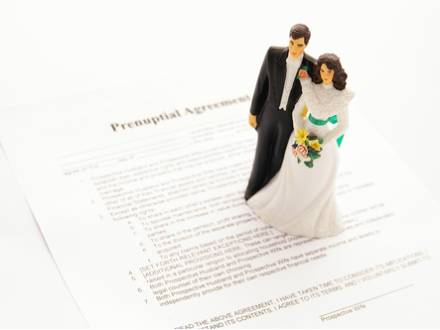Recent Blog Posts
What Are the Penalties for Marijuana Possession in Wisconsin?

Many states allow the medical use of marijuana, and some states have even taken steps to decriminalize or legalize the drug entirely. However, marijuana continues to be illegal in Wisconsin. Anyone who is accused of possessing weed, including those who traveled to nearby states such as Illinois or Michigan to buy it, may face criminal charges.
If you have been arrested and charged with marijuana possession in 2026, you need a Waukesha drug crimes defense attorney.
What Is Considered Marijuana Possession in Wisconsin?
Under Wisconsin law 961.41, marijuana is classified as a Schedule I controlled substance. Possession of marijuana is defined as having any amount of the drug on your person or in your control.
How Do Wisconsin’s Open Carry Laws Affect Weapons Charges?

Wisconsin allows people to openly carry firearms. Certain types of weapons may be carried in plain view of others without the need to obtain a concealed carry weapon (CCW) license. However, some restrictions do apply to those who openly carry firearms. Violating Wisconsin gun laws in 2026, even accidentally, could result in weapons charges.
Even minor mistakes in how you carry or where you carry a firearm can lead to serious criminal consequences that affect your future forever. Our Wisconsin gun crimes defense lawyers can build a strong case if you are facing weapons charges.
Who Can Legally Open Carry in Wisconsin?
In Wisconsin, individuals over the age of 18 are allowed to carry unconcealed firearms in public. Licenses or permits are generally not required for a person to own or openly carry a firearm.
How To Negotiate Alimony in Your Wisconsin Divorce
 Wisconsin courts still encourage negotiation and settlement in divorce cases, including disputes about alimony. In Wisconsin, alimony is negotiable, and many divorces resolve maintenance through agreement rather than a judge’s decision. Understanding how the law works helps you take part in those discussions with more confidence.
Wisconsin courts still encourage negotiation and settlement in divorce cases, including disputes about alimony. In Wisconsin, alimony is negotiable, and many divorces resolve maintenance through agreement rather than a judge’s decision. Understanding how the law works helps you take part in those discussions with more confidence.
You might be surprised to learn that you have more control over alimony decisions than you think. Our Muskego, WI divorce lawyers can help explain how maintenance works and how negotiation usually happens.
What Is Alimony in Wisconsin?
Wisconsin uses the term maintenance instead of alimony. Maintenance is financial support paid by one spouse to the other after divorce. The purpose is to help both spouses reach a reasonable level of financial stability.
What Does a Bench Warrant Mean in Wisconsin?
 A bench warrant is a court order signed by a judge. It gives law enforcement the authority to take a person into custody and bring them before the court. Often, people only learn about a bench warrant after being stopped by police or trying to clear up a record. If you are unsure about your status or worried that a missed obligation may have triggered court action, our New Berlin, WI criminal defense lawyers can help you get answers before the situation escalates.
A bench warrant is a court order signed by a judge. It gives law enforcement the authority to take a person into custody and bring them before the court. Often, people only learn about a bench warrant after being stopped by police or trying to clear up a record. If you are unsure about your status or worried that a missed obligation may have triggered court action, our New Berlin, WI criminal defense lawyers can help you get answers before the situation escalates.
How Does a Bench Warrant Work in Wisconsin?
Unlike many other warrants, a bench warrant usually does not come from a new criminal charge. It is most often tied to something that happened during an existing case. In many situations, a bench warrant is issued after someone misses a required court appearance or fails to comply with a court order, intentionally or unintentionally. That might include unpaid fines, missed probation meetings, or failure to complete court-ordered programs. The goal of the warrant is not to punish you right away. Instead, it is meant to bring you back into court so the judge can address the issue directly with you there.
Signs Your Marriage is Over and It’s Time to Think About Divorce
 When you are struggling in your marriage, you may wonder whether the problems can be fixed or if it is healthier to make a change. Couples sometimes stay together because they hope things will improve. Others stay because they worry about money, their children, or what divorce might mean for their future. If you think it may be time to take the next step, our Brookfield, WI divorce lawyers can help.
When you are struggling in your marriage, you may wonder whether the problems can be fixed or if it is healthier to make a change. Couples sometimes stay together because they hope things will improve. Others stay because they worry about money, their children, or what divorce might mean for their future. If you think it may be time to take the next step, our Brookfield, WI divorce lawyers can help.
How Do You Know When Your Marriage Is Really Over?
There is rarely one event that ends a marriage. It typically starts with noticing a pattern that grows over time. You may feel lonely even when your spouse is sitting in the same room. You may argue about the same problems again and again. You may stop arguing completely because you no longer feel connected enough to try.
Emotional distance is one of the strongest warning signs. This happens when you do not feel supported, understood, or cared for, and it can happen slowly. One day, you may realize you feel more like roommates than partners.
Understanding Wisconsin Disorderly Conduct Laws
 Anyone behaving in a way that disturbs the peace can be charged with disorderly conduct and face the associated penalties. You can be charged with disorderly conduct even if no one was actually disturbed, and the penalties can be harsh. If you have been charged with disorderly conduct, Bucher, Wolff & Sonderhouse, LLP can help. Our Milwaukee, WI disorderly conduct defense attorneys will work with you to build a strong case against the allegations.
Anyone behaving in a way that disturbs the peace can be charged with disorderly conduct and face the associated penalties. You can be charged with disorderly conduct even if no one was actually disturbed, and the penalties can be harsh. If you have been charged with disorderly conduct, Bucher, Wolff & Sonderhouse, LLP can help. Our Milwaukee, WI disorderly conduct defense attorneys will work with you to build a strong case against the allegations.
What Are the Penalties for Disorderly Conduct in Wisconsin?
Disorderly conduct is classified as a Class B misdemeanor under Wis. Stat. § 947.01 and can result in up to 90 days in jail and a fine of up to $1,000. These crimes do not often take much to result in charges and are among the most commonly charged offenses in Wisconsin.
When Is a Speeding Ticket Not Just a Speeding Ticket?
 Seeing flashing red lights in your rearview mirror is rarely a positive experience. In some cases, it can alter your entire future. According to a news report from early 2025, Wisconsin ranks second in the country for the number of speeding tickets issued. While penalties for excessive speed may be milder than in many other states, you could still face serious consequences that affect your record, your license, and even your job.
Seeing flashing red lights in your rearview mirror is rarely a positive experience. In some cases, it can alter your entire future. According to a news report from early 2025, Wisconsin ranks second in the country for the number of speeding tickets issued. While penalties for excessive speed may be milder than in many other states, you could still face serious consequences that affect your record, your license, and even your job.
Driving more than 30 miles per hour over the posted speed limit adds a layer of complexity that can seriously affect your future. Now is not the time to handle a speeding ticket alone. Having experienced Menomonee Falls, WI traffic violation defense lawyers advocating for you can make a major difference in the outcome of your case — and could even keep you out of jail.
How Are Child Support Payments Calculated in Wisconsin?
 Wisconsin’s child support system is designed to be fair and consistent. It ensures that children are cared for no matter which parent they live with most of the time. Calculating child support payments involves looking at each parent’s finances and determining a fair amount to support the child’s needs. Whether you are paying or receiving support, our experienced Pewaukee, WI child support lawyers can help. We will ensure you have all the documentation necessary to create a fair and accurate support order.
Wisconsin’s child support system is designed to be fair and consistent. It ensures that children are cared for no matter which parent they live with most of the time. Calculating child support payments involves looking at each parent’s finances and determining a fair amount to support the child’s needs. Whether you are paying or receiving support, our experienced Pewaukee, WI child support lawyers can help. We will ensure you have all the documentation necessary to create a fair and accurate support order.
How Does Child Support Work in Wisconsin?
Under Wisconsin Statute § 767.511, courts have the power to order one or both parents to provide financial support for their children. They also have guidelines for calculating child support in a consistent way across the state. Wisconsin uses something called the percentage-of-income standard. This means the amount of child support is based on the paying parent’s income and the number of children being supported. The court may also adjust the amount if parents share physical placement, have large differences in income, or if one parent pays for certain expenses like health insurance or child care.
Prenuptial Agreements for High-Net-Worth Couples
 When couples with a significant asset portfolio plan to marry, drafting a prenuptial agreement is generally a wise thing for them to consider. A prenup is a legal contract signed before marriage. It outlines rules for property, debts, and financial responsibilities. Although some worry that it seems unromantic, a prenup is a practical tool that provides clarity and reduces conflict if a marriage ends in divorce.
When couples with a significant asset portfolio plan to marry, drafting a prenuptial agreement is generally a wise thing for them to consider. A prenup is a legal contract signed before marriage. It outlines rules for property, debts, and financial responsibilities. Although some worry that it seems unromantic, a prenup is a practical tool that provides clarity and reduces conflict if a marriage ends in divorce.
In Wisconsin, property division follows community property rules. This makes prenuptial agreements especially valuable for high-net-worth couples. The first step is to contact our Oconomowoc, WI prenuptial agreement lawyers. We will help you ensure that your agreement is valid and tailored to your unique financial situation so that it offers you maximum protection.
Why Do High-Net-Worth Couples Need a Prenuptial Agreement in Wisconsin?
In Wisconsin, marriage is treated as an economic partnership. This means that assets acquired during the marriage are generally divided equally if the couple divorces. Under Wis. Stat. § 767.61, the court presumes that property should be split 50/50. Under this community property system, it does not matter who earned more money or how each spouse contributed differently to the household.
Can Drug Possession Charges Be Reduced to a Misdemeanor?
 A felony drug possession charge carries heavy penalties with sometimes long-lasting consequences. A misdemeanor may still carry penalties, but it is far less damaging than a felony. A felony drug possession charge can bring serious penalties and long-lasting consequences that may affect your job, housing, and future opportunities.
A felony drug possession charge carries heavy penalties with sometimes long-lasting consequences. A misdemeanor may still carry penalties, but it is far less damaging than a felony. A felony drug possession charge can bring serious penalties and long-lasting consequences that may affect your job, housing, and future opportunities.
Thankfully, in some cases, felony drug charges can be reduced to misdemeanors. Whether that is possible depends on the type and quantity of drug, your criminal history, and the details of your arrest. An experienced Muskego, WI drug charges defense lawyer will fight to reduce your charges and protect your rights.
Understanding Drug Possession Charges in Wisconsin
Under § 961.41(3g) of the Uniform Controlled Substances Act, it is illegal to have a controlled substance without a valid prescription. These drugs are grouped into "schedules." Schedule I drugs, such as heroin and LSD, are seen as the most dangerous. Schedule V drugs, like some cough syrups with codeine, are considered the least so.









 262-232-6699
262-232-6699





